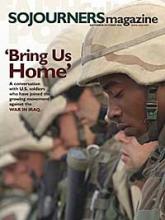This would be a good month to rest the terms “readings” and “passages.” These are lessons and we would do well to become students once again. Voices from the book of Proverbs and the letter of James—and poetically, the psalms—give us tangible instructions about practicing the Christian life. This Proverbs-James axis of practicality forms a natural bridge between the Old and New Testaments.
In some ways, we are provided spirituality by subtraction. Humility, silence, clarity, authenticity, and impartiality clear the way for God’s guidance and gospel practices. In other ways, we are invited into righteous action.
So there is little opportunity here to stroke our chins or generate lofty abstractions. The main reprieve from this no-excuses schoolroom comes in the love ballads in the first two passages of week one and in Proverbs in week three—though in the latter it is on the street and in the public square where Wisdom is making her voice heard.
The epistle of James might open a door to a deeply ecumenical (and even interfaith) call to humility and service. Proverbs and James draw from diverse traditions, from Jewish ethics to Greek philosophy. Ironically, these aspects of the practice of Christian life offer common ground with classmates in other faiths with a similar bias for righteous action.
Robert Roth is a writer and social activist in East Lansing, Michigan.
September 3
Get Real
Song of Solomon 2:8-13; Psalm 45:1-2, 6-9; James 1:17-27; Mark 7:1-8, 14-15, 21-23
Read the Full Article
